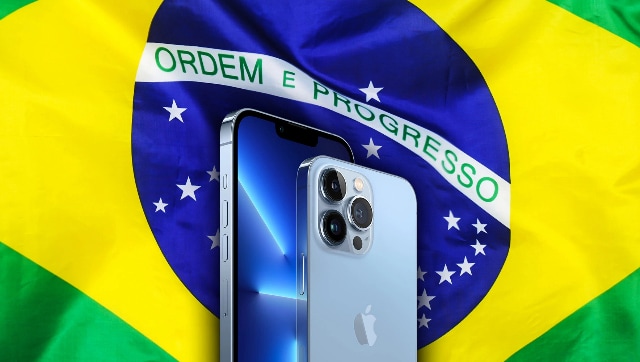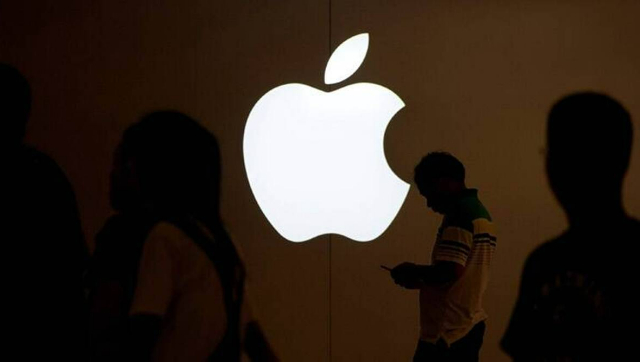Brazil on Thursday fined Apple $19 million for selling iPhones without chargers. A Sao Paulo civil court judge, calling it an “abusive practice” that forces customers to buy an additional product, levied the 100 million reais fine as damages in a lawsuit filed by the Brazilian Consumers’ Association. The move effectively “requires consumers to purchase a second product in order for the first to work,” Judge Caramuru Afonso Francisco wrote in his ruling. He ordered the California company to supply chargers to all consumers in Brazil who bought iPhone models 12 or 13 in the past two years, and begin including them with all new purchases. The verdict came after Brazil’s justice ministry slapped a separate fine of nearly $2.5 million on Apple in September over the same issue and barred the US tech giant from selling its iPhone 12 and 13 models without chargers. Apple has vowed to appeal both decisions. Which is leading some to wonder – should India consider similar action against Apple? Let’s take a closer look: Apple stopped including outlet chargers with new iPhones in October 2020, saying it wanted to help reduce electronic waste. The controversial move to stop including outlet chargers for all iPhone was derided by rivals such as Samsung and Xiaomi. [caption id=“attachment_11448911” align=“alignnone” width=“640”] Apple was earlier ordered to stop selling the iPhone without a charger.[/caption] While they mocked Apple as being greedy and made it a point to note that they include chargers with their phones, it was the California-based company that had the last laugh. As per Indian Express, Samsung, Google and Nothing have, two short years later, jumped on Apple’s bandwagon – with Oppo set to follow in their wake. While all of them have echoed Apple’s reasoning – reducing e-waste – as being behind their decision, the move doubtlessly helps these companies increase their profits. Removing chargers makes packaging slimmer for most devices slimmer, which allows companies to ship nearly twice as many phones in shipment containers, the piece noted. The newspaper also quoted reports as saying that Apple saw a ‘significant reduction’ in shipping costs once the charger and earpods were removed from its packaging. “They sold this as kind of an environmentally friendly rule,” Angelo Zino, a senior industry analyst with investment research firm CFRA Research told The Verge. “Clearly the bottom line has a lot to do with it.”
Apple was earlier ordered to stop selling the iPhone without a charger.[/caption] While they mocked Apple as being greedy and made it a point to note that they include chargers with their phones, it was the California-based company that had the last laugh. As per Indian Express, Samsung, Google and Nothing have, two short years later, jumped on Apple’s bandwagon – with Oppo set to follow in their wake. While all of them have echoed Apple’s reasoning – reducing e-waste – as being behind their decision, the move doubtlessly helps these companies increase their profits. Removing chargers makes packaging slimmer for most devices slimmer, which allows companies to ship nearly twice as many phones in shipment containers, the piece noted. The newspaper also quoted reports as saying that Apple saw a ‘significant reduction’ in shipping costs once the charger and earpods were removed from its packaging. “They sold this as kind of an environmentally friendly rule,” Angelo Zino, a senior industry analyst with investment research firm CFRA Research told The Verge. “Clearly the bottom line has a lot to do with it.”
Meanwhile, he much-touted environmental benefits of such a move remain in doubt.
As the Verge piece astutely noted, people buying earbuds and chargers separately could offset any ‘savings’. People buying chargers or headphones separately could mean more packaging waste and emissions from separate deliveries, the piece noted. While that may add to Apple’s carbon footprint, other companies’ carbon footprints could increase if consumers purchase accessories from other vendors. Which means emissions aren’t being reduced overall, but rather being spread around more evenly. Meanwhile, as this Firstpost piece noted, companies such as Apple, Samsung, and Xiaomi have other reasons to sell their chargers separately – ranging from encouraging reselling of their products to boosting sales of wireless earphones and headphones . “Like any other regular business, tech companies will never leave an opportunity to eke out more money in the form of sales, even if it is to the detriment of the planet,” the piece noted.
Meanwhile, Apple is also facing other charger-related headaches.
Last week, the European Parliament passed a law requiring all smartphones, tablets and cameras to use USB-C ports as the single charger standard from late 2024, which will force Apple to change its phone designs. One charger to rule them all? A senior consumer affairs ministry official in August said the Centre is exploring the adoption of a common charger for a variety of devices, including smartphones and tablets. If companies can serve in Europe and the US, why cannot they do it in India? Portable electronic devices like smartphones and tablets should have a common charger," the official told PTI.
If India does not push for this change, such products might get dumped here, the official added.
Currently, consumers are forced to buy a separate charger every time they buy a new device due to incompatibility of the ports of the existing charger. With inputs from agencies Read all the Latest News , Trending News , Cricket News , Bollywood News , India News and Entertainment News here. Follow us on Facebook , Twitter and Instagram .
)